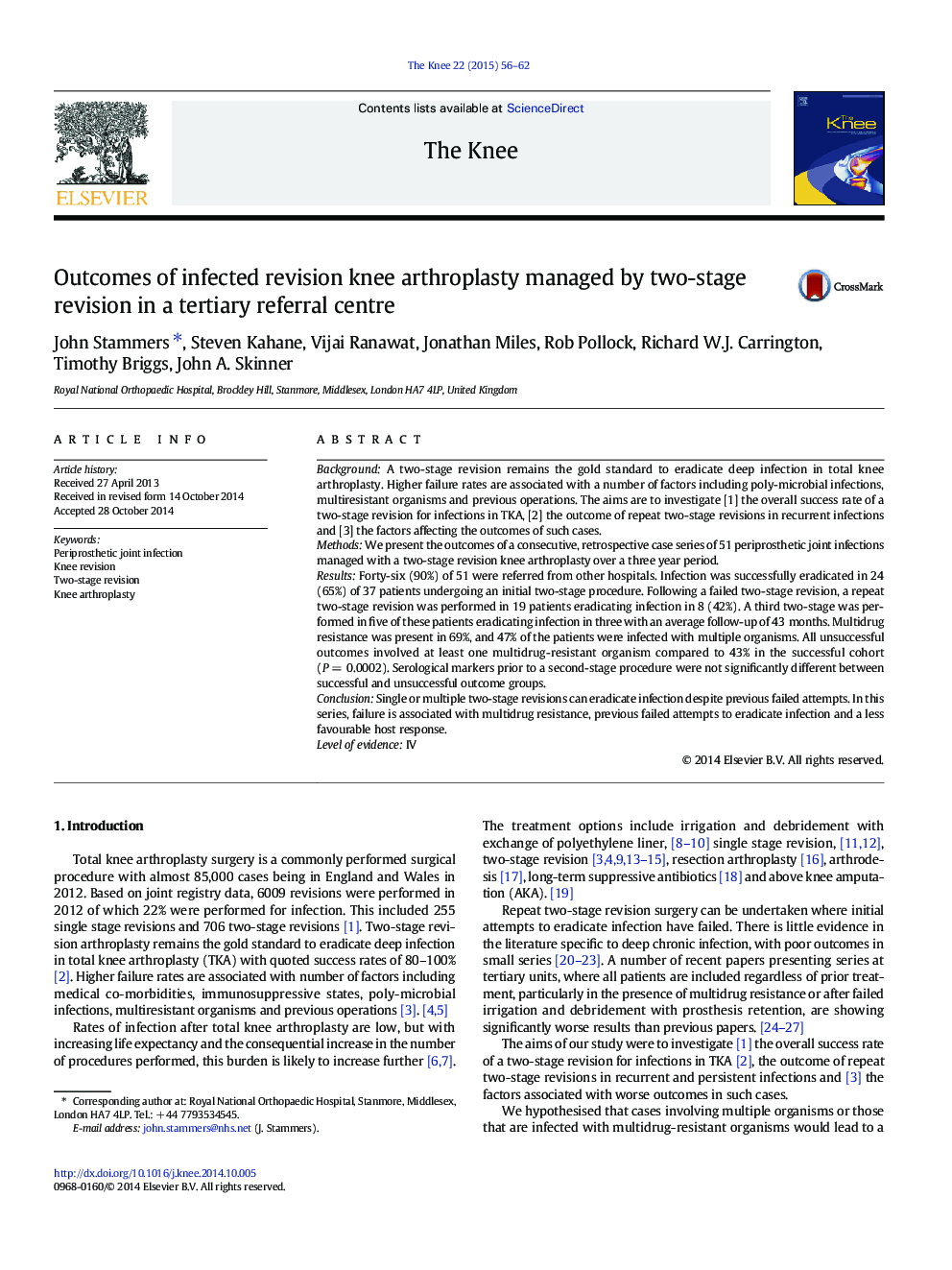| کد مقاله | کد نشریه | سال انتشار | مقاله انگلیسی | نسخه تمام متن |
|---|---|---|---|---|
| 6211412 | 1267215 | 2015 | 7 صفحه PDF | دانلود رایگان |
- We present the outcomes of a series of 51 periprosthetic joint infections managed with two-stage revision knee arthroplasty at a tertiary referral unit.
- A proposed cutoff of CRP less than 10 and an ESR less than 30 to guide timing of second-stage surgery did not reliably predict success.
- Failure is associated with multidrug resistance and a less favourable host response.
- Repeat two-stage revision is a viable option to eradicate infection, however chances of success decrease.
BackgroundA two-stage revision remains the gold standard to eradicate deep infection in total knee arthroplasty. Higher failure rates are associated with a number of factors including poly-microbial infections, multiresistant organisms and previous operations. The aims are to investigate [1] the overall success rate of a two-stage revision for infections in TKA, [2] the outcome of repeat two-stage revisions in recurrent infections and [3] the factors affecting the outcomes of such cases.MethodsWe present the outcomes of a consecutive, retrospective case series of 51 periprosthetic joint infections managed with a two-stage revision knee arthroplasty over a three year period.ResultsForty-six (90%) of 51 were referred from other hospitals. Infection was successfully eradicated in 24 (65%) of 37 patients undergoing an initial two-stage procedure. Following a failed two-stage revision, a repeat two-stage revision was performed in 19 patients eradicating infection in 8 (42%). A third two-stage was performed in five of these patients eradicating infection in three with an average follow-up of 43Â months. Multidrug resistance was present in 69%, and 47% of the patients were infected with multiple organisms. All unsuccessful outcomes involved at least one multidrug-resistant organism compared to 43% in the successful cohort (PÂ =Â 0.0002). Serological markers prior to a second-stage procedure were not significantly different between successful and unsuccessful outcome groups.ConclusionSingle or multiple two-stage revisions can eradicate infection despite previous failed attempts. In this series, failure is associated with multidrug resistance, previous failed attempts to eradicate infection and a less favourable host response.Level of evidenceIV
Journal: The Knee - Volume 22, Issue 1, January 2015, Pages 56-62
